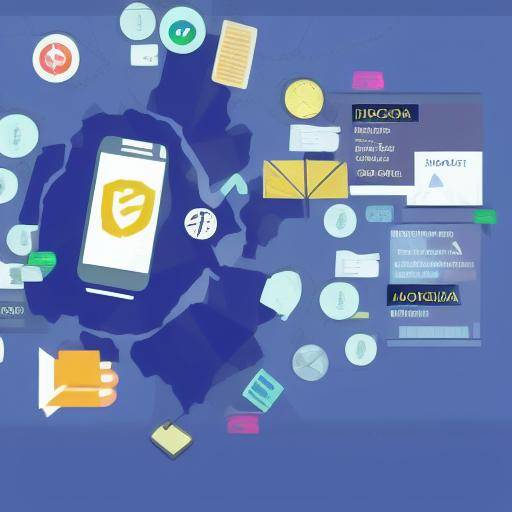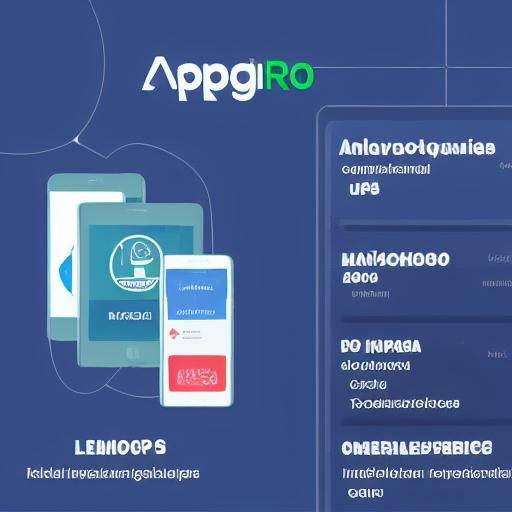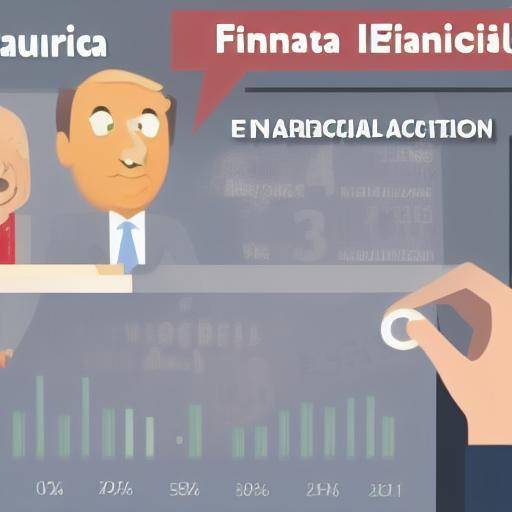
At present, the proper management of personal finances is crucial to achieving long-term economic stability and financial well-being. Fortunately, technological advances have allowed people to access tools that facilitate financial management, such as personal finance applications. In this article, we will explore the impact of these applications on financial education, focusing on knowledge acquisition, accessibility to financial tools and efficiency in economic management. Learn how these applications are revolutionizing how people manage their finances and how they are contributing to improving their financial education.
Knowledge: Acquiring Financial Capacity
Personal finance applications not only provide tools to manage money, but are also an inexhaustible source of financial knowledge. From savings, investment, to retirement planning tips, these applications educate users about important financial concepts. By having educational information at hand, people can acquire knowledge that was previously available only to finance experts. This democratization of financial knowledge is vital to improving the financial education of the population, as it trains users to make informed and responsible decisions regarding their personal finances.
Accessibility: Financial Tools to the Scope of All
One of the most outstanding advantages of personal finance applications is its accessibility. Before, personalized financial advice was costly and generally reserved for those with a high estate, but today, anyone with a smartphone can access tools that allow them to manage their money efficiently. These applications remove barriers such as geographical distance and high costs, making them a powerful tool to improve financial inclusion and provide more people with the opportunity to effectively manage their finances.
Efficiency: Optimizing Financial Management
Personal finance applications offer tools that allow users to track their expenses, set budgets, monitor investments and track their financial goals. Task automation such as cost classification and investment tracking saves time and reduces errors. This allows people to focus on analyzing their financial situation and making strategic decisions. In addition, the ability to instantly access financial data at any time and place improves financial decision-making, resulting in more efficient management of personal finance.
Conclusion
In short, personal finance applications have a significant impact on financial education by increasing knowledge, improving accessibility to financial tools and optimizing economic management. By providing users with the ability to effectively take control of their finances, these applications are contributing to a more financially informed and empowered society. The future of financial education is in the incorporation of these innovative technological tools, which will surely improve individual and collective financial health.
FAQs
Q: Will personal finance applications replace traditional financial advisers?
A: Although applications provide valuable tools, they do not completely replace personalized financial advice. However, they can complement the work of advisers, providing users with greater autonomy and knowledge to make informed financial decisions.
Q: What are the main features I should look for in a personal finance application?
A: By choosing a personal finance application, you are looking for features such as cost tracking, budget setting, synchronization with bank accounts and credit cards, custom alerts and investment tools.
Q: What security measures do personal finance applications have to protect the financial information of users?
A: Personal finance applications typically implement robust security measures, such as data encryption, two-factor authentication, and compliance with data protection regulations. It is essential to choose applications from reliable sources and maintain security updates.
Q: Are personal finance applications free?
A: Many applications offer free versions with basic features, but they also feature premium versions that offer additional features. It is important to evaluate individual needs and payment options before choosing an application.
Q: How can personal finance applications help teach financial education to children?
A: Some applications are specifically designed to teach children basic financial concepts such as savings, responsible spending and money management. These tools can be useful in laying the foundations for sound financial education from an early age.
Q: What is the long-term impact of using personal finance applications on individual financial health?
A: Continuous use of personal finance applications may have a long-term positive impact on financial health, as it promotes healthy financial habits, improves decision-making and provides greater awareness of money management, which can lead to greater financial stability over time.
Q: What future trends are expected in the development of personal finance applications?
A: Personal finance applications are expected to integrate advanced technologies, such as artificial intelligence and automatic learning, to provide more personalized recommendations and predictive analysis. In addition, these applications are likely to expand their approach to comprehensive financial planning, including aspects such as insurance, taxes and property planning.
With these frequently addressed questions, readers are expected to gain a deeper understanding of personal finance applications and their impact on financial education.
By reviewing the information provided in this article, it is clear that personal finance applications have revolutionized how people manage their finances and have contributed significantly to improving financial education in society. By providing knowledge, accessibility and efficiency, these technological tools are empowering users to take control of their finances in an informed manner.
The future of financial education is promising thanks to the positive impact these applications are generating. It will continue to evolve as technological advances are integrated and the capabilities of these tools are expanded. Ultimately, the goal of improving financial education and the overall financial health of people will remain the driving force behind innovation in this area.






















































